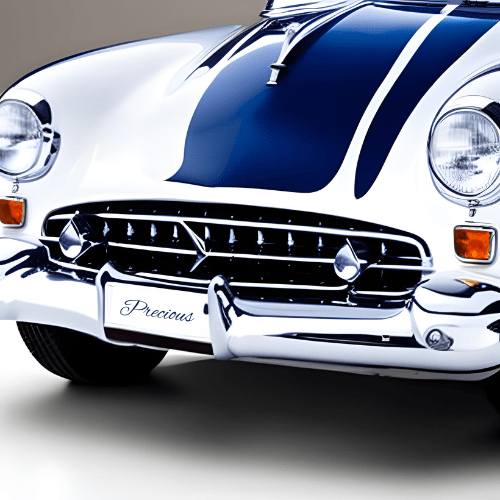Classic cars are vehicles that are at least 20 years old and have retained their original design, features, and engine. These cars are not just a piece of history; they represent the peak of automotive design and engineering. Classic cars are often passed down through families as an heirloom, but their value can be much more than just sentimental. Classic cars are sought after by collectors, enthusiasts, and investors, and can fetch a high price on the market.
Table of Contents
- The History of Classic Cars
- Types of Classic Cars
- The Value of Classic Cars
- Maintaining Classic Cars
- Classic Car Restoration
- Classic Car Investment
- Classic Cars in Popular Culture
- Conclusion
- FAQs

The History of Classic Cars
The first car was invented in 1886 by Karl Benz, and it took a few decades for cars to become widely available. In the 1920s and 1930s, cars became a symbol of wealth and status, and automakers began producing vehicles that were not just functional but also luxurious and stylish. These vehicles were built to last, with quality materials and attention to detail.
Types of Classic Cars
Classic cars can be divided into several categories, depending on their age, design, and features. Some of the most popular categories are antique cars, vintage cars, and muscle cars. Antique cars are those built before 1915, while vintage cars are those built between 1915 and 1930. Muscle cars are a type of sports car that were popular in the 1960s and 1970s and were built for high performance.
The Value of Classic Cars
The value of a classic car depends on several factors, including its age, condition, rarity, and history. Classic cars that are well-maintained, have low mileage, and have their original features and parts can be worth a lot of money. The value of a classic car can also increase over time, making it a good investment. Classic cars are often sold at auctions, where collectors and enthusiasts bid on them.
Maintaining Classic Cars
Maintaining a classic car is not an easy task, but it’s necessary if you want to preserve its value and keep it in good condition. Regular maintenance includes oil changes, tune-ups, and inspections. You should also keep your classic car clean and protected from the elements. Classic cars require specialized care, and it’s important to find a mechanic who has experience working with vintage vehicles.
Classic Car Restoration
Restoring a classic car is a complex and time-consuming process, but it can be worth it if you want to bring an old vehicle back to life. Restoration involves disassembling the car, repairing or replacing damaged parts, and repainting the vehicle. Restoring a classic car requires a lot of skill and knowledge, and it’s important to find a reputable restoration shop.
Classic Car Investment
Investing in classic cars can be a lucrative business, but it requires a lot of research and knowledge. You should research the market trends and consult with experts before making any investment decisions. Classic cars are considered alternative investments, and they can provide a good return on investment if you choose the right vehicle.
Classic Cars in Popular Culture
Classic cars have played a significant role in popular culture, appearing in movies, TV shows, and music videos. Some of the most iconic classic cars in popular culture include the DeLorean from Back to the Future, the Mustang from Bullitt, and the Mini Cooper from The Italian Job. Classic cars have become a symbol of style, freedom, and adventure, and they continue to inspire generations.
Conclusion
In conclusion, the surprising value of your family’s classic car heirloom may be worth much more than you realize. These vehicles are not just a piece of history but also a valuable asset that can provide a good return on investment. Maintaining and restoring classic cars requires specialized care and knowledge, but it’s worth the effort to preserve these iconic vehicles for future generations.
FAQs
A classic car is a vehicle that is at least 20 years old and has retained its original design, features, and engine.
The value of a classic car depends on several factors, including its age, condition, rarity, and history. You can consult with experts or appraisers to determine the value of your classic car.
Yes, you can insure your classic car with a specialized insurance policy that provides coverage for its unique features and value.
Maintaining a classic car requires regular maintenance, including oil changes, tune-ups, and inspections. You should also keep your classic car clean and protected from the elements.
Restoring a classic car is a complex and time-consuming process, and it requires a lot of knowledge and skill. It’s recommended to find a reputable restoration shop to ensure the best results.